![You can almost eat our new pillow filler [infographic]](https://ashtonmanufacturing.com.au/wp-content/uploads/Website-Media-Resources-image-11-1080x675.jpg)
by joshua2 | Media
One of our brand values is our commitment to environmentally sustainable practices. We continually work with our suppliers to develop products that will achieve this end.
We have recently been working with one of our suppliers and have developed an amazing biodegradable, Australian-made, environmentally-friendly filler for the pillows that we supply with our lined coffins.
This new filler is a remarkably clean, sustainable product made from Australian wheat starch and has some remarkable attributes:
- 100% Australian made
- 100% biodegradable – completely breaks down
- Clean and safe for cremation
- Good for burial – can improve soil structure
- No harmful residue
- Better for the environment, soil and air than petroleum based products
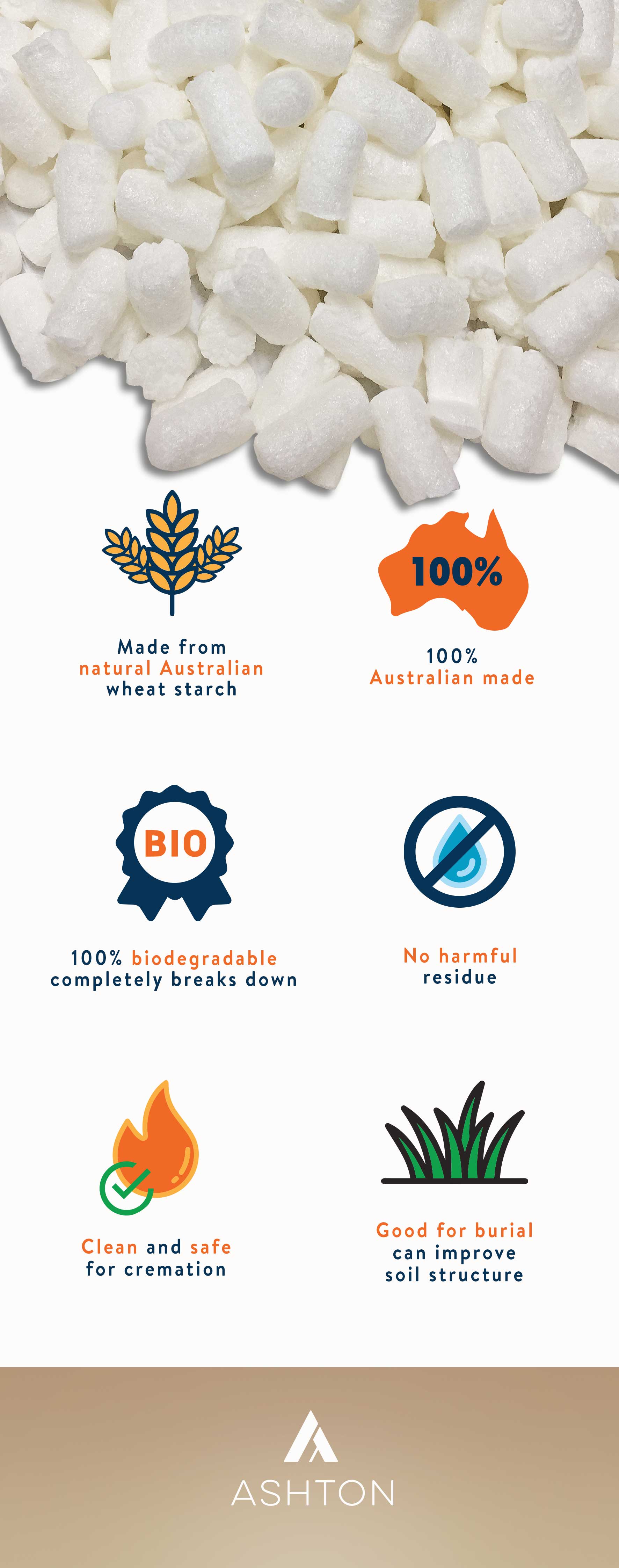
Read more about our commitment to sustainability:
Our Memorial Tree Program
Our new contemporary, award-winning coffin range: Return to Sender
Please note: Our pillow filler cannot be eaten!
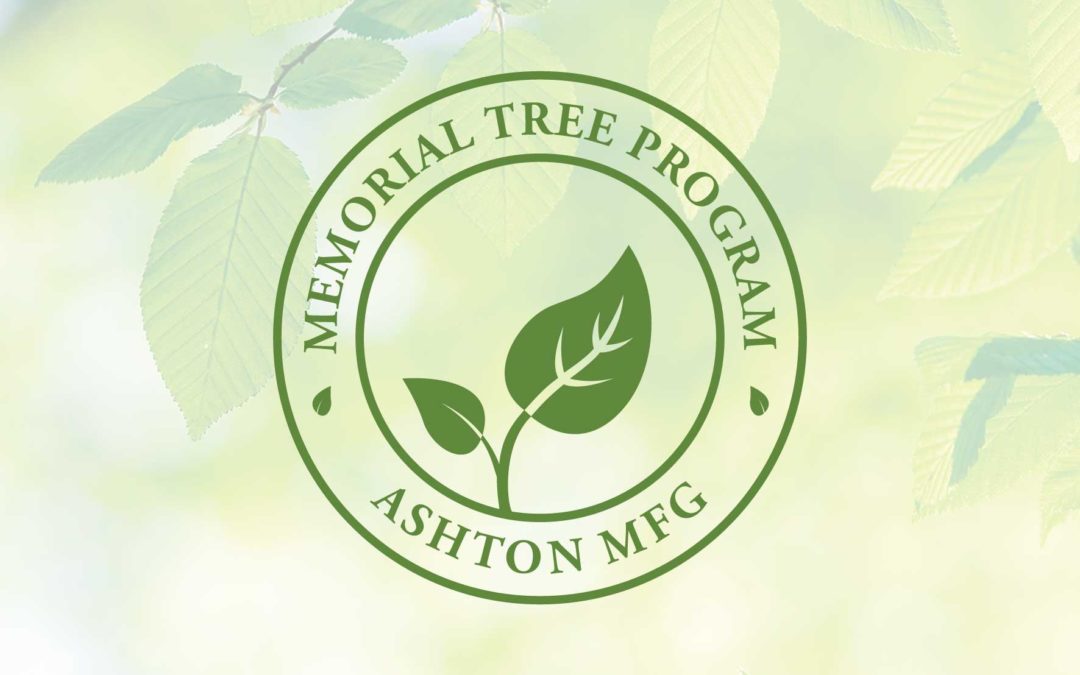
by joshua2 | Media
A memorial tree is a tree that is planted as a way of memorialising the life of a special person. You can think of it as a living legacy of a family’s loved one.
When a family purchases one of your caskets or coffins from our Memorial Tree program range, a memorial tree will be planted on the family’s behalf.
This video explains how our Memorial Tree Program works, plus the benefits for families and for your funeral home.
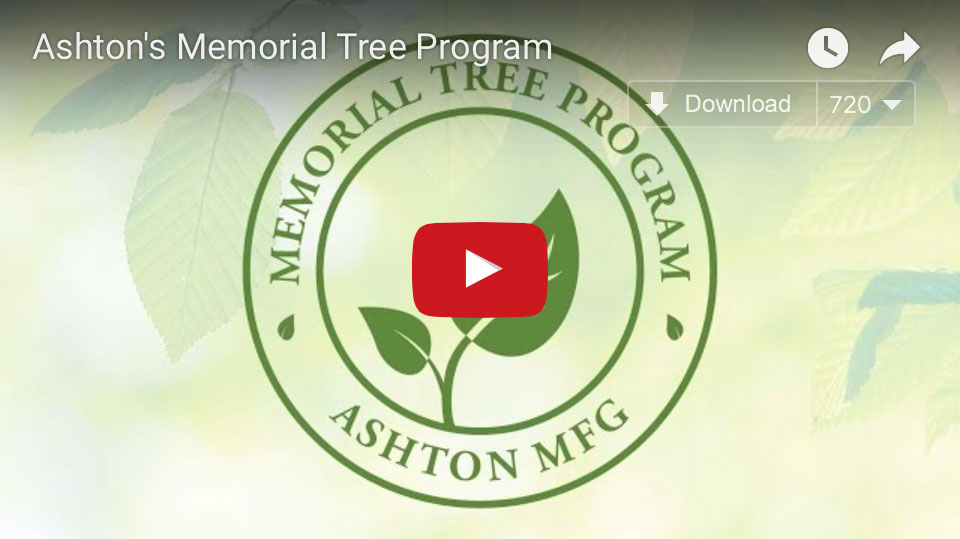
Login to our Resources page to view the video.
Talk to your Account Manager about introducing our Memorial Tree Program into your funeral home.

by joshua2 | Media
Time Management is one of those management buzzwords, but it actually relates to the process of planning and consciously controlling the amount of time we spend on various activities, with the goal of increasing our effectiveness and productivity.
Most of us know that we could be managing our time more effectively, but it can be difficult to do in practice. When we do manage our time well we are highly productive at work, and our stress levels usually decrease.
We have put together this 60 second self-assessment that will show you how well (or not) your time management principles are working for you.
Print out the score sheet below and put a 1, 2 or 3 in each box that best describes you right now.

Once you have completed the score sheet add up your answers to reveal what your score says about your time management practices below.
How did you score?
Below 24: Danger zone
Time management is virtually non-existent and there are danger signs that you are losing control of your time. The impact on others around you will be significant. Think about the consequences of continuing to live your life this way.
Review your answers and identify ways to improve your time management.
24 – 33: Pressure cooker
You are doing most of your work under pressure and this is causing stress for you and the people around you. You have a feeling of never really getting on top of the workload.
Identify ways to do work that is in line with your long term goals, rather than just doing the ‘urgent, not important’ tasks.
34 – 43: Almost there
You are probably using effective time management tools currently, but there may be some areas which could improve. Some days can be hectic, but you tend to manage okay. However, if more challenges or activities come your way, then chaos may come to the fore again.
44 – 53: Balanced and in control
You have a terrific attitude to your work and your time. You leave a balanced life and plan your time so that you do the things that are important to you. If you have been just focusing on your time management at work, consider how are you manage your personal time. Is that as balanced and as in control as your work life?
54: Time management guru
If you scored 54 and were totally honest in your answers, you are a time management guru and could help others in your organisation or your personal life to master time management.
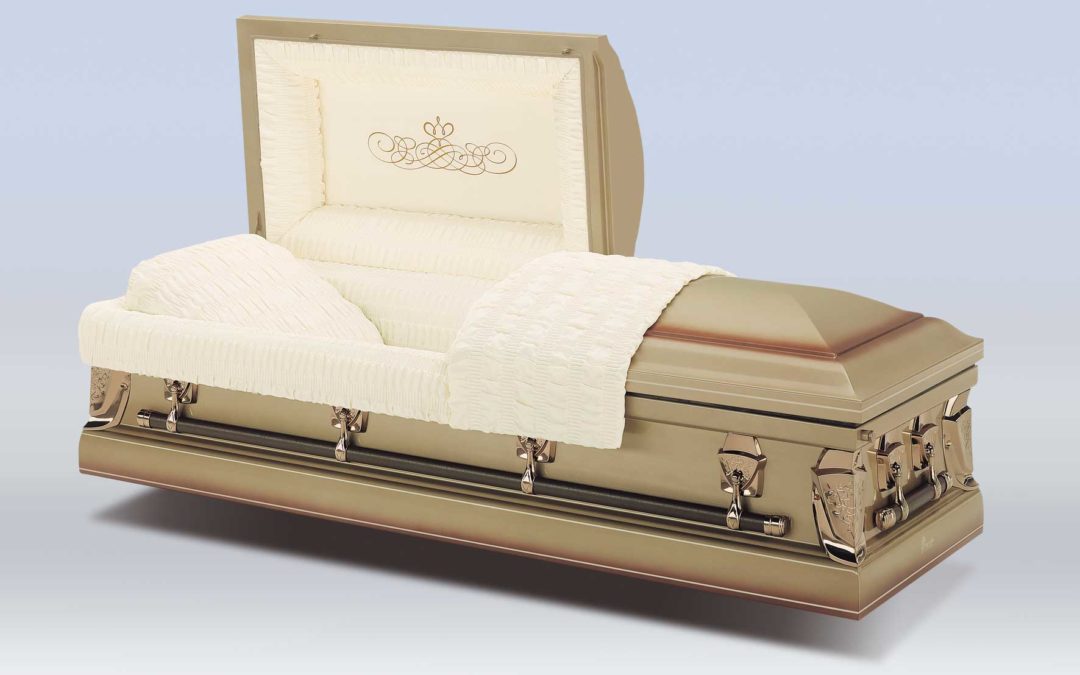
by joshua2 | Media
The Desert Champagne casket may be the perfect addition to add to your showroom. It is a stunning example of Batesville Casket Company’s unrelenting focus on providing the world’s finest caskets that help families honour the lives of those they love.
This 20-gauge steel casket sits in the middle of Batesville’s price range and offers affordability for families, as well as some of the finer qualities of Batesville’s upper range models.
The inherent strength and corrosion-resistant qualities of steel make it a highly sought after material for families looking for a casket with enduring qualities.
The highest quality carbon steel is used to create Batesville’s Desert Champagne casket and it is painted with a special shaded finish and features unique pin striping, that gives the casket a more refined look.
The Desert Champagne casket has some industry-leading features including:
- Lid locking mechanism plus a one-piece rubber gasket seal
- Continuously welded base
- 5-year limited warranty
- Interior chemically treated to resist rust and corrosion
- Memorial Record™ System
- Living Memorial® Program
Please contact your Ashton account manager or call us on 1300 263 346, if you would like to add this beautiful Batesville casket to your range today.
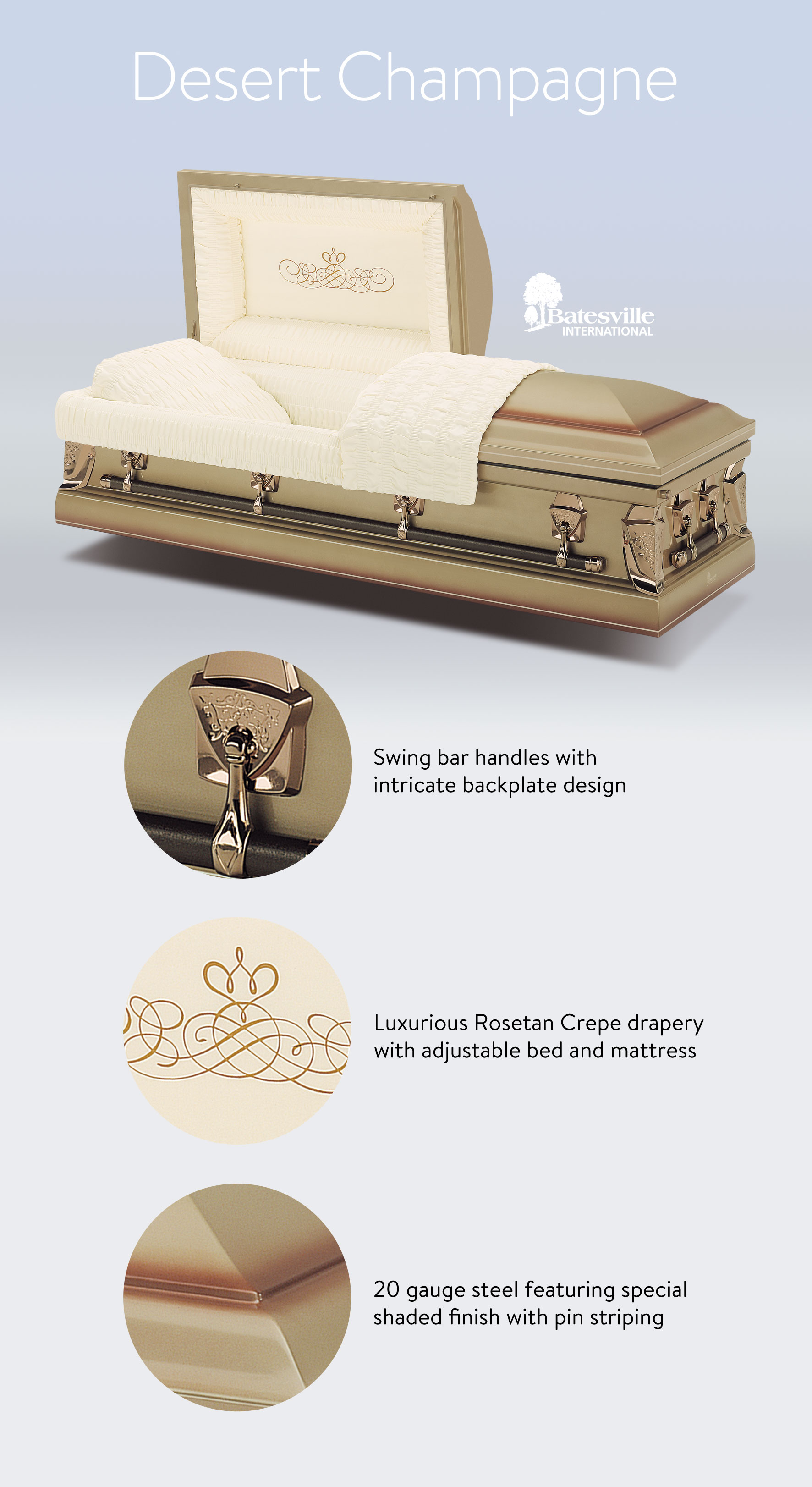
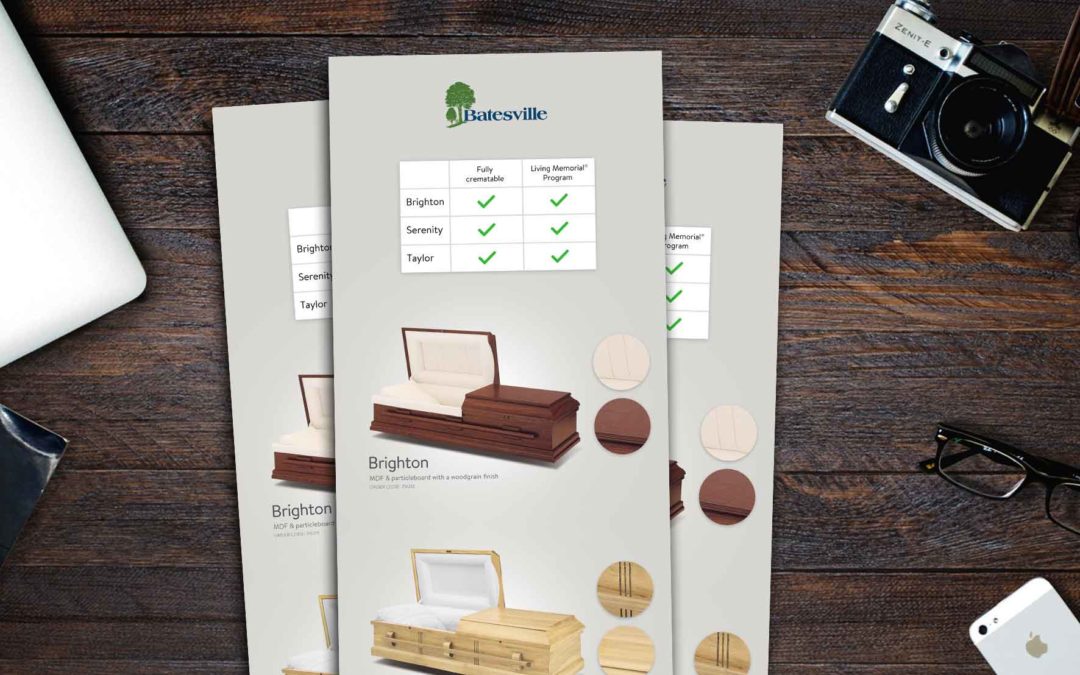
by joshua2 | Media
For over one hundred years, Batesville Casket Company has manufactured the world’s finest caskets. Premium craftsmanship, the highest quality materials and constant innovation have become the hallmarks of Batesville and have helped the company to become the most iconic casket brand in the world.
You would be forgiven therefore, for assuming that all Batesville caskets are available at a premium price. But this is not correct.
You will be surprised to know that there is a selection of Batesville caskets that carries the iconic brand name and qualities but is significantly more affordable than the solid timber, bronze and steel options. This range of Batesville caskets allows more families to be able to choose a Batesville casket for their loved one, at a lower price point.
What’s more, these caskets are all fully crematable and part of Batesville’s trademarked Living Memorial® Program.
The graphic below shows the Brighton, Serenity and Taylor casket options from this range.
Please contact your Ashton account manager for more information on this range or you can download the full Batesville catalogue here.

![You can almost eat our new pillow filler [infographic]](https://ashtonmanufacturing.com.au/wp-content/uploads/Website-Media-Resources-image-11-1080x675.jpg)









